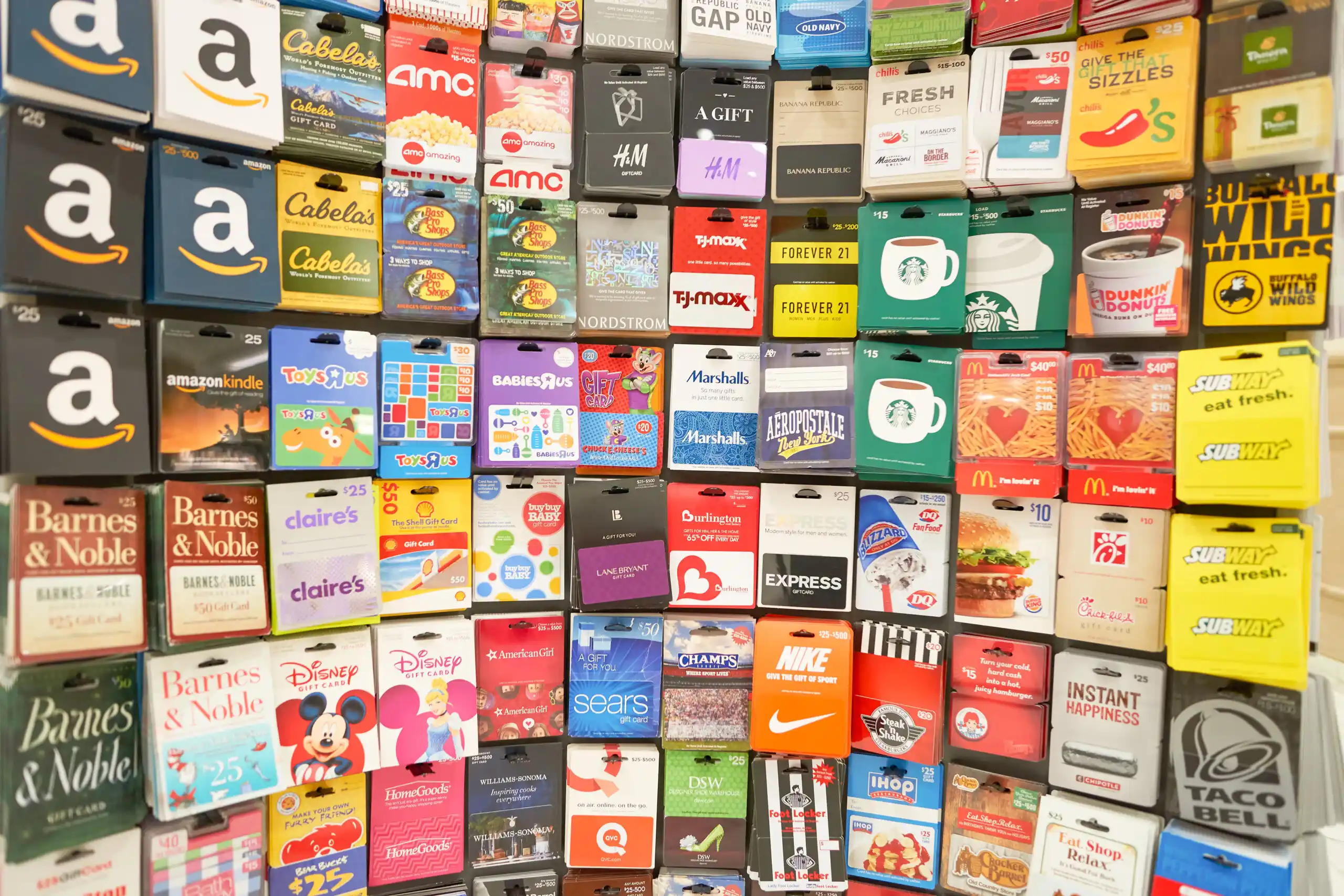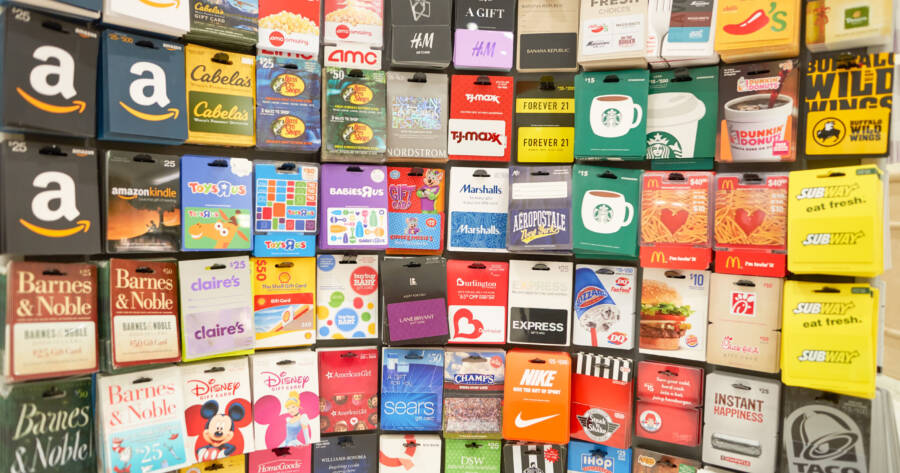Maybe it’s the flurry of holiday shopping. Or the financial anxiety that comes with end-of-the-year expenses. Whatever the reason, November and December are prime season for gift card scams. In fact, the IRS recently issued a warning to everyone about these common cons. Unfortunately, hundreds of people fall for these scams every year. In the process, criminals make off with thousands of dollars. We’re here to help make sure you don’t end up on the losing end of one of these grifts.
How It Works
The concept is actually fairly simple. A scammer will call or email you, posing as a bill collector or government agency. They will tell you about some unpaid bill that you need to pay immediately. They may even threaten legal action if you don’t pay up right away. When you agree, they tell you the quickest way to pay is via a gift card. Cards from Walmart, Amazon, GooglePlay, or iTunes are common, but they could be from anywhere. The important thing to remember is that you should never pay a bill with a gift card.
In some cases, they may also attempt to impersonate a friend or family member. This actually happened to a family member of mine. My mom’s email address was compromised. The scammer sent everyone in her contact list some bogus story about needing some Google gift cards for a birthday present for her granddaughter. However, she wasn’t able to buy them herself for [insert dumb reason here]. Unfortunately, my mother’s elderly aunt fell for it and bought $200 worth of gift cards. When the scammers emailed again, asking for more, she finally called my mom to double check.
Why Gift Cards?
Gift cards are the perfect tool for scammers. They are easy to buy — you can buy them online with a credit card. Then, they are easy to transfer. Most gift card balances can be redeemed with just the card number and/or a user-created PIN. They don’t even need the physical card to access the funds on it.
Once they’ve drained the card, you’re completely out of the luck. The money is gone. If you realize you’ve been scammed quickly enough, you might be able to contact the company that issued it and get a replacement card or a refund. They might also tell you there’s nothing they can do about it. If you bought the gift cards with a credit card, it might be worth a call to your credit card provider too. They may be able to help reverse the charge for you.
Other Things To Watch Out For
Although pretending to be the IRS is the most common tactic used by scammers, here are some other things to watch out for.
- Callers saying they are from a utility company, threatening to cut off your service if you don’t pay.
- Callers pretending to be eBay sellers, offering discounts on “big ticket” items if you agree to pay with gift cards.
- Someone pretending to be a member of the military, trying to sell you something quickly before they deploy. The item will be heavily discounted if you pay with gift card, of course.
- A caller informing you that you’ve won some lottery or prize. You just need to pay an administration fee (with a gift card) to collect. Spoiler alert: there is no prize.
- Someone responding to a legitimate classified ad you made online. They will send you a check for more than the purchase price. They will claim it was an accident and ask for the difference back in the form of a gift card. The check will end up bouncing, since it’s fake.
Social Media Concerns
Now is as good a time as any to remind you about social media privacy. If your Facebook account is open to anyone, there’s a good chance someone will try to use that against you. They may learn your birthday, and attempt to scam you by saying they have a birthday delivery for you — you just need to cover some customs charges. Or they may learn the names of your parents, children, or grandchildren. Again, those are small tidbits of information that make a scam seem more legitimate without a closer look.
The Bottom Line
Never pay a bill with a gift card. Seriously, NEVER PAY A BILL WITH A GIFT CARD. It’s simply not a thing. The IRS doesn’t want Walgreens money and your phone company doesn’t accept Amazon cards as payment.
If you find out you’ve been scammed, it might be too late to get your own money back. However, you should report the fraud to the FTC, through the site or by calling toll-free: 1-877-FTC-HELP. You should also report the scam to your state Attorney General (visit naag.org for a list by state). You might be able to bring down the scammers, preventing them from swindling others and (hopefully) forcing them into some legal repercussions.
 Shutterstock
Shutterstock







